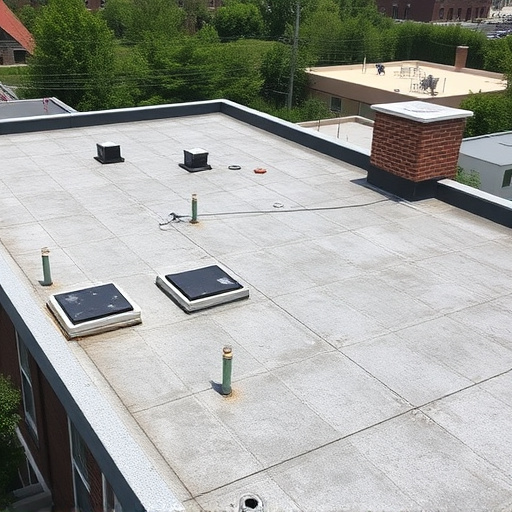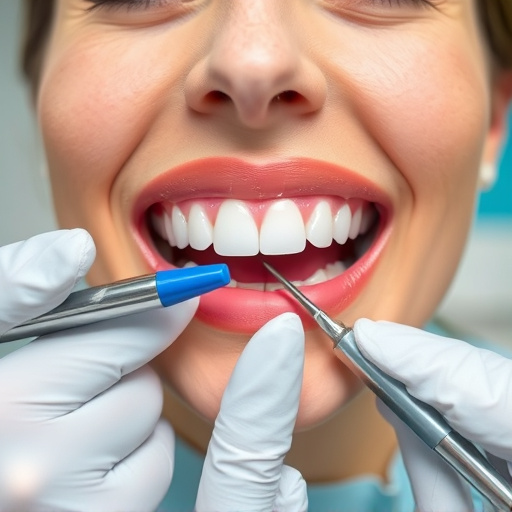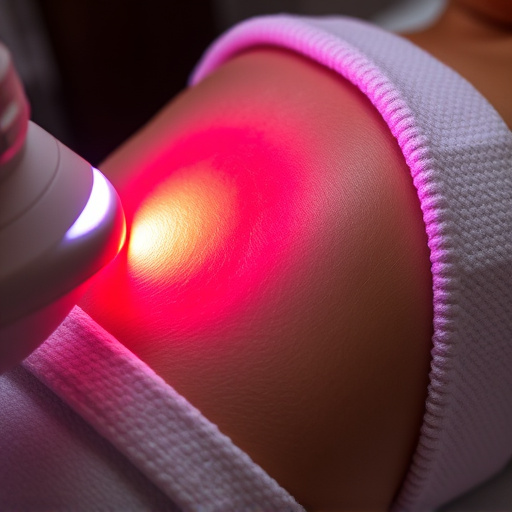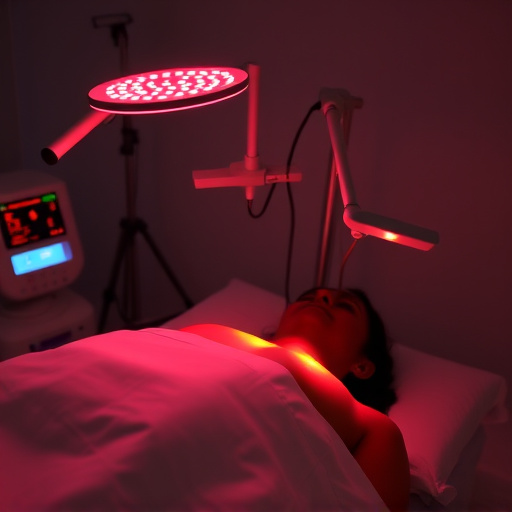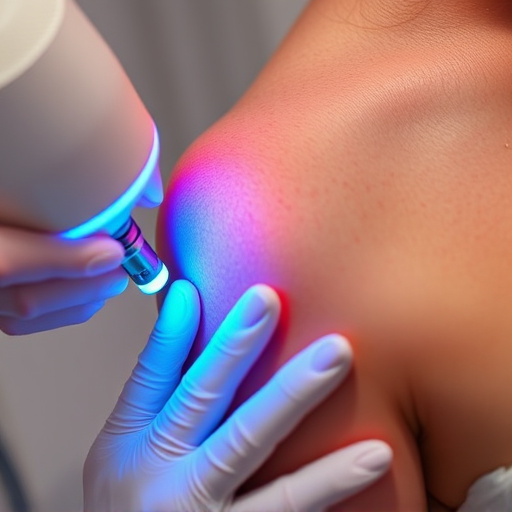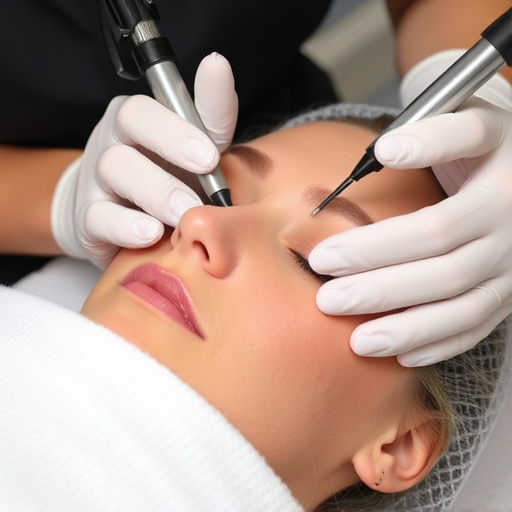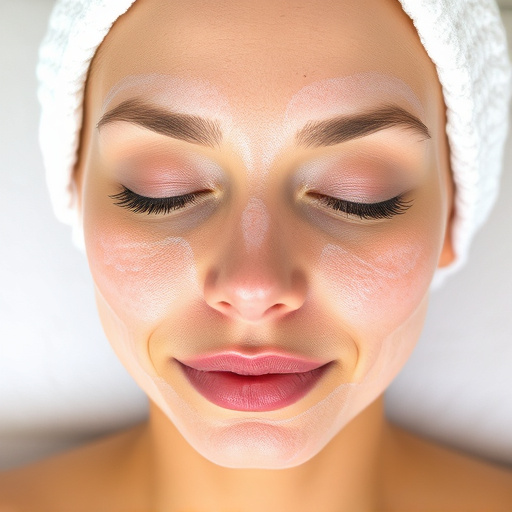Acne scars result from damaged collagen fibers beneath the skin's surface. Effective acne scar treatment focuses on stimulating collagen production to enhance skin elasticity and reduce scar visibility. Strategies include topical treatments like retinoids and Vitamin C serums, professional procedures like chemical peels and hydrating facials, and non-surgical methods such as microdermabrasion. Combining these treatments can provide comprehensive benefits for smoother, more even skin.
Acne scars can leave lasting marks on the skin, but various treatments offer hope for restoration. Understanding how acne scars form is crucial to choosing effective remedies. Collagen, a key component of healthy skin, plays a vital role in scar reduction. This article explores topical treatments that stimulate collagen production and non-surgical procedures to minimize acne scars. By delving into these options, you’ll gain insights into achieving smoother, more youthful-looking skin.
- Understanding Acne Scar Formation and Collagen
- Topical Treatments for Boosting Collagen Production
- Non-Surgical Procedures to Reduce Acne Scars
Understanding Acne Scar Formation and Collagen

Acne scars form when skin inflammation causes damage to the collagen fibres beneath the surface. Collagen is a key protein responsible for maintaining skin elasticity and structure. During an acne flare-up, the body’s natural healing process can disrupt the production of healthy collagen, leading to depressed or raised scar tissue. Understanding this intricate relationship between acne and collagen is crucial when exploring effective acne scar treatment.
Professional skincare treatments often target collagen stimulation as a primary strategy. Hydrating facials, for instance, nourish the skin with essential nutrients, enhancing its natural collagen production. Some advanced procedures even incorporate skin-tightening techniques to promote collagen renewal and improve the appearance of acne scars. By boosting collagen levels, these treatments help restore the skin’s elasticity, reducing the visibility of scars and promoting a healthier, more youthful complexion.
Topical Treatments for Boosting Collagen Production

One of the most effective ways to address acne scars and boost collagen production is through topical treatments. These products are designed to stimulate the skin’s natural healing process and encourage the formation of new, healthy collagen. Retinoids, for instance, are a popular choice due to their ability to increase cell turnover and promote the synthesis of collagen. Vitamin C serum is another powerful tool; it not only brightens the skin but also stimulates collagen production, helping to reduce the appearance of scars.
Chemical peels and hydrating facials are professional skincare treatments that can significantly enhance collagen levels. Peels use a combination of chemicals to exfoliate the skin, removing damaged layers and encouraging the growth of new, smoother skin. Hydrating facials, on the other hand, focus on providing deep hydration to the skin, which is crucial for optimal collagen production. These professional procedures offer advanced solutions for acne scar treatment, leaving the skin rejuvenated and with improved texture.
Non-Surgical Procedures to Reduce Acne Scars

Non-surgical procedures have emerged as a popular and effective way to reduce the appearance of acne scars. These treatments offer a non-invasive approach, providing significant improvements in skin texture and overall complexion. One such procedure is microdermabrasion, which gently exfoliates the top layer of skin, stimulating collagen production and revealing smoother, more even skin. Another popular option is chemical peels, where specialized chemicals are used to remove damaged skin cells, promoting the growth of new, healthy skin.
For those seeking a comprehensive approach, combining treatments like hydrating facials with medical spa services can be highly beneficial. These facials focus on deep hydration and nutrient delivery, enhancing the effects of other procedures. Moreover, anti-aging treatments targeting specific concerns can also aid in acne scar reduction by addressing fine lines, wrinkles, and skin hyperpigmentation, which often accompany scarring.
Acne scar treatment options have evolved significantly, offering hope to those struggling with blemishes. By understanding how collagen plays a crucial role in both scar formation and healing, individuals can make informed decisions about their skin care routines. From topical treatments that stimulate collagen production to non-surgical procedures that gently reshape scars, various methods provide effective solutions for reducing the appearance of acne scars. Remember that, while these strategies promote healthy skin, consistent sun protection is essential for maintaining long-lasting results.
